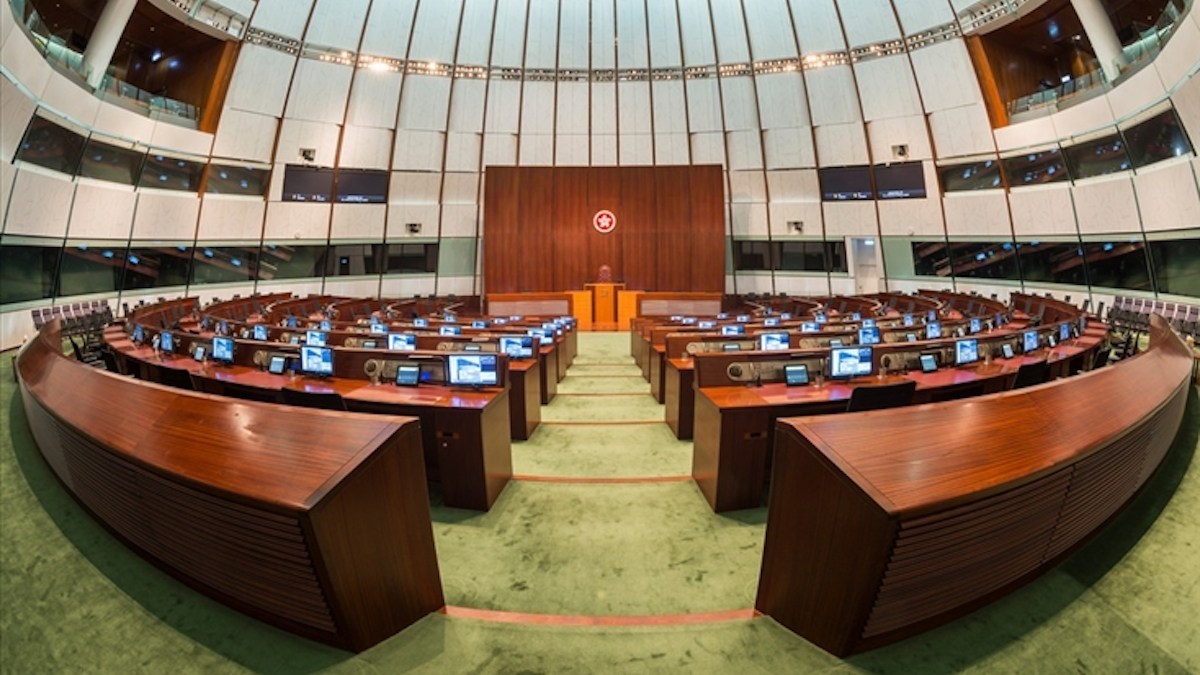[ad_1]
HONG KONG – Beijing will soon announce and implement changes to Hong Kong’s election systems to ensure “patriots†win the majority of seats in the Legislative Council and Election Committee later this year.
For LegCo general elections, it was likely that the current “multi-seat, single-vote†system would be replaced by a “two-seat, single-voteâ€Â system, said Rita Fan, a former President of LegCo and also an ex-member of the Standing Committee of the National People’s Congress.
She made the comments after attending a closed-door forum chaired by Hong Kong and Macau Affairs Office (HKMAO) director Xia Baolong in Shenzhen on Sunday and Monday.
The number of districts in the general election would increase from five to at least 10, while each district would have two seats, Fan said. If there were only 10 districts with 20 seats, the remaining 15 seats from the general election could be selected by the 1,200-member Election Committee, she said.
Each candidate in the LegCo election should be nominated by at least 10 Election Committee members, she added. Under the new system, the pro-democracy camp would win about half of the 20 seats in the general election, while the pro-establishment camps would win the remaining half, Fan added.
The five seats of the District Council (Second) functional constituency, or so-called “super district council,†would be replaced by some functional constituencies that represent the emerging sectors or help Hong Kong integrate with the Greater Bay Area, Maria Tam Wai-chu, a member of the Committee for the Basic Law, said after the same forum.
Unions and organizations
Unions and organizations that wanted to register as voters of their relevant functional constituencies should show that they had a service period of at least four to five years and had hired staff and paid taxes, Tam said.
Such a move was aimed at preventing people from registering as a functional constituency voter by setting up a new organization, she said.
Since the first LegCo election in 1998, Hong Kong has adopted the “multi-seat, single-vote†system in its general election. Instead of using the most straight-forward “one-seat, one-vote†system in dozens of small districts, multi-seats were available in each of the five large districts for the LegCo elections so the pro-establishment camp could win 40-45% of the seats in the general election.
With 75% of the functional constituency seats, the pro-establishment camp had controlled more than 60% of the votes in the LegCo for more than two decades.
In November 2019, Beijing was shocked by the unexpected landslide victory of the pro-democracy camp in the District Council elections. Benny Tai, the then associate professor of law at the University of Hong Kong, suggested that the pro-democracy camp could control the LegCo chamber by winning 35 of the 70 seats in the elections in September 2020.
On top of its existing 26 seats, the pro-democracy camp would need to win nine more seats.
In July 2020, more than 600,000 people participated in the informal primary elections for democrats. However, the government then postponed the LegCo elections by one year to this September for public health reasons.
‘Conspiracy to commit subversion’
On Sunday, 47 democrats were charged with “conspiracy to commit subversion†for joining the primaries, in which someone had called for vetoing the budget and paralyzing the government’s operations.
If the changes proposed by Beijing are implemented, moderate democrats will still win a dozen seats in the LegCo, but they can be disqualified by the government at any time, according to some political analysts.Â
On Tuesday, dozens of Hong Kong delegates of the National People’s Congress (NPC) and the Chinese People’s Political Consultative Conference (CPPCC) departed for Shenzhen to get tested for the coronavirus before attending the “two sessions,†the annual NPC and CPPCC meetings, in Beijing on Thursday.
The two sessions would probably be halved to only one-week due to the pandemic, reports said.
Media reports said the details of the potential changes to Hong Kong’s election system would be announced during the two sessions. After that, the standing committee of the NPC will hold a special meeting to approve the changes. Election rule amendments in Hong Kong will be completed by May.
Priscilla Leung, a legislator of the Business and Professionals Alliance and a Basic Law Committee member, said a special committee should be set up to vet potential candidates who plan to take part in local elections.
Ip Kwok-him, a Hong Kong deputy to the NPC, said it was likely that Beijing would remove the 117 seats representing the District Council from the 1,200-strong Election Committee that would select the next Chief Executive in March 2022.
An ad hoc item
He said district councilors should not be empowered to pick the top leader. He expected the 117 seats would be filled with NPC and CPPCC members.
“It’s likely the 117 seats for district councilors on the election committee will be canceled. We see that members from the opposition camp won a lot of seats in the district council election. If they can get into the election committee, it will affect the Chief Executive election,†he said.
Ip said he expected the matter to be added as an ad hoc item on the NPC session’s agenda.
It was unreasonable to replace all district councilors from the Election Committee with the NPC and CPPCC members, said Ma Ngok, an associate professor of the Department of Government and Public Administration at the Chinese University of Hong Kong.
“The Election Committee is supposed to include representatives from different social and political sectors. In the past, the government has always claimed that the district councils are more representative of local public opinion, so I would say this is a kind of refutation to the past government position,†he said.
“Hong Kong people never cast a vote for the NPC and CPPCC members, but they did cast a vote for the district councilors.â€
Ma also said setting up a committee to screen potential candidates for future LegCo polls would essentially abolish all democratic elements of the local election system.
[ad_2]
Source link














